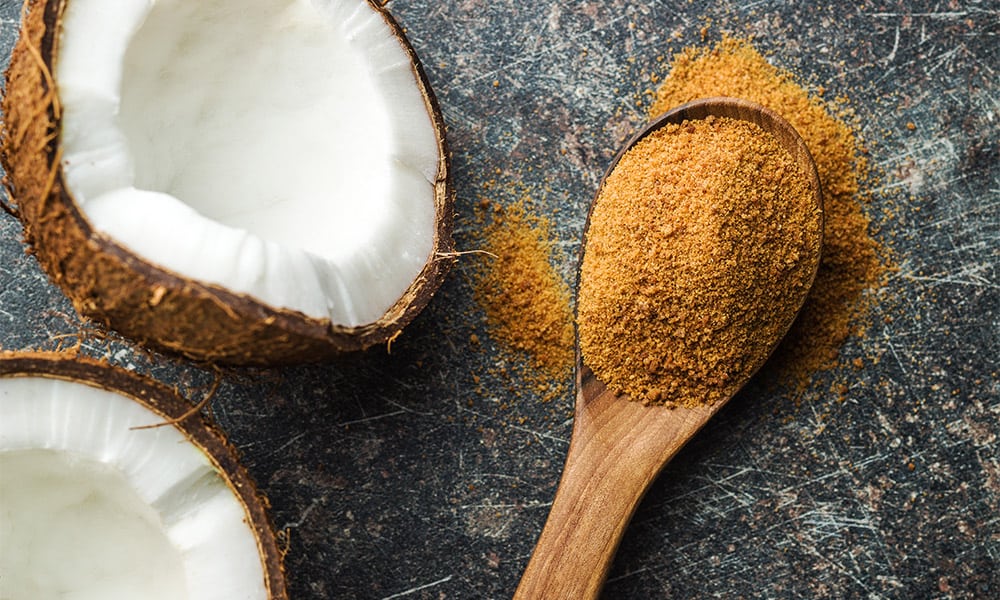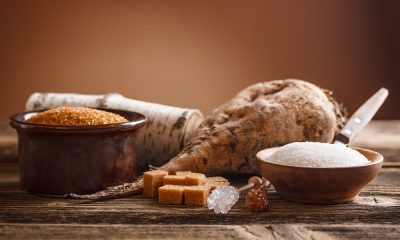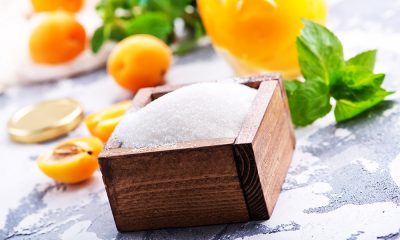Wellness
Is Coconut Nectar a Sugar Alternative?
Coconut sugar is still sugar… ?

“Coconut sugar is still sugar”
We encourage people to cut back on sugar because it is one of the largest health problems society is facing today. If coconut sugar were part of this answer, then we would be encouraging the use of it, but it’s not.
Whenever something is sweet, we have to first ask where this sweetness comes from. Is it a simple sugar like glucose, fructose or sucrose? Is it a sugar alcohol like xylitol or erythritol? Or is it something else like the glycosides in stevia?
For coconut sugar it is simple sugars (70-80% sucrose, 3-9% glucose and 3-9% fructose – ASEAN 1992 Vol. 7 No. 4 p. 200-201).
The health claim made on coconut sugar is that it has a low GI of 35, which is much better than table sugar (sucrose) which has a GI of 60. The first problem is that the single study which this number comes from is a study done in the Philippines (a producer of coconut sugar) and only included 10 individuals. Looking at the study and the amount of simple sugars that are in coconut sugar, it is very likely that the GI of coconut sugar in your body is much higher than 35. The second, and biggest problem, is that coconut sugar is not doing anything to reduce the overconsumption of simple sugars. Yes, it is better than refined white sugar since it has more nutrition and fiber, but better does not mean good.
Coconut sugar or coconuts? A coconut palm tree cannot produce both.
Coconut sugar, also called coconut palm sugar or nectar, is made by cutting the coconut flower and draining the sap. This of course kills the flower that otherwise would have been a coconut.
We love coconuts and everything that comes from them – Coconut oil, milk, water, flakes, flour… coconut contains lots of great fats and lots of great fibers, so let’s eat more coconuts and less sugar!

Wellness
Beneath the Layers

In the beginning of the journey of work clients and I venture on, the surface issues and discussions are initially “just surface.”
In fitness, when there’s a movement a client cannot perform after much practice and polishing, the first thought is that they just can’t do it. Soon enough, we discover their central nervous system has protected their body from moving in that specific manner, because there is a limiting belief and limiting decision their central nervous system and their unconscious mind have a greed upon. And it has defined itself as “safety.”
When clients want to lose weight, we later on discover the emotional un-resolve rooted in eating patterns inhibiting them from their success of doing so. Sometimes, more often than others, there’s systematic problems inhibiting digestion promoting bloating, infections wreaking havoc, and the list goes on.
Mental blocks become obvious as we begin to peel away the layers. We eventually become acquainted that the behavioral “issues” desired to be changed, are very obvious physical symptoms or manifestations breeding beneath deeper layers.
There’s a lot of “stuff” we stuff. That “stuff” will introduce itself to you and the world around you, eventually. Self preservation can feel “safe” and comfortable. But it is unsustainable. Eventually the totality of us, will beg to be resolved. Lean in listen and learn. Eventually you will heal.
“We will project that which is unconscious in the most obvious of ways in order to become consciously aware which is most unconscious so we can gain the learning necessary to get results.”- Nathan Rossi
-

 Wellness6 years ago
Wellness6 years agoHow to Talk to Your Kids About Sugar
-

 Wellness5 years ago
Wellness5 years agoBeneath the Layers
-

 Wellness7 years ago
Wellness7 years agoThe Sugar Story Children’s Book – Teaching Kids About Sugar
-

 Purpose5 years ago
Purpose5 years agoNever Let Technology Keep You from Your Dream!
-

 Wellness7 years ago
Wellness7 years ago5 Myths About Xylitol
-

 Lifestyle6 years ago
Lifestyle6 years agoOrganic, Sustainable, Non-Toxic Vacation Homes!
-

 Lifestyle6 years ago
Lifestyle6 years ago5 Ways to Make Your Next Hotel Stay Healthier
-

 Unrecipe7 years ago
Unrecipe7 years agoSuper Simple Apple Cake

























